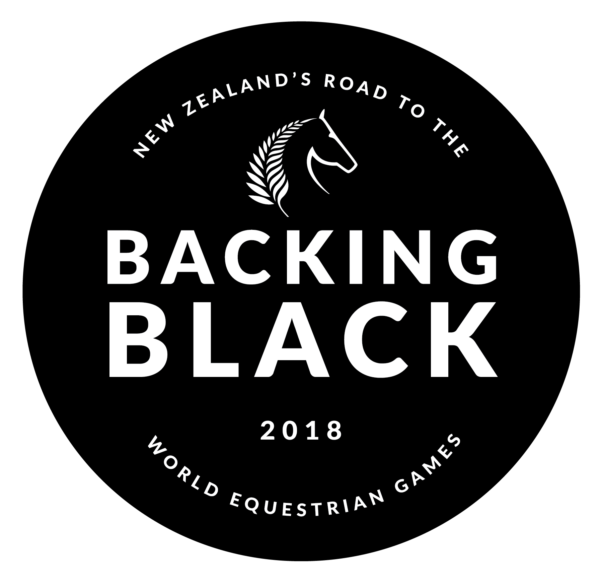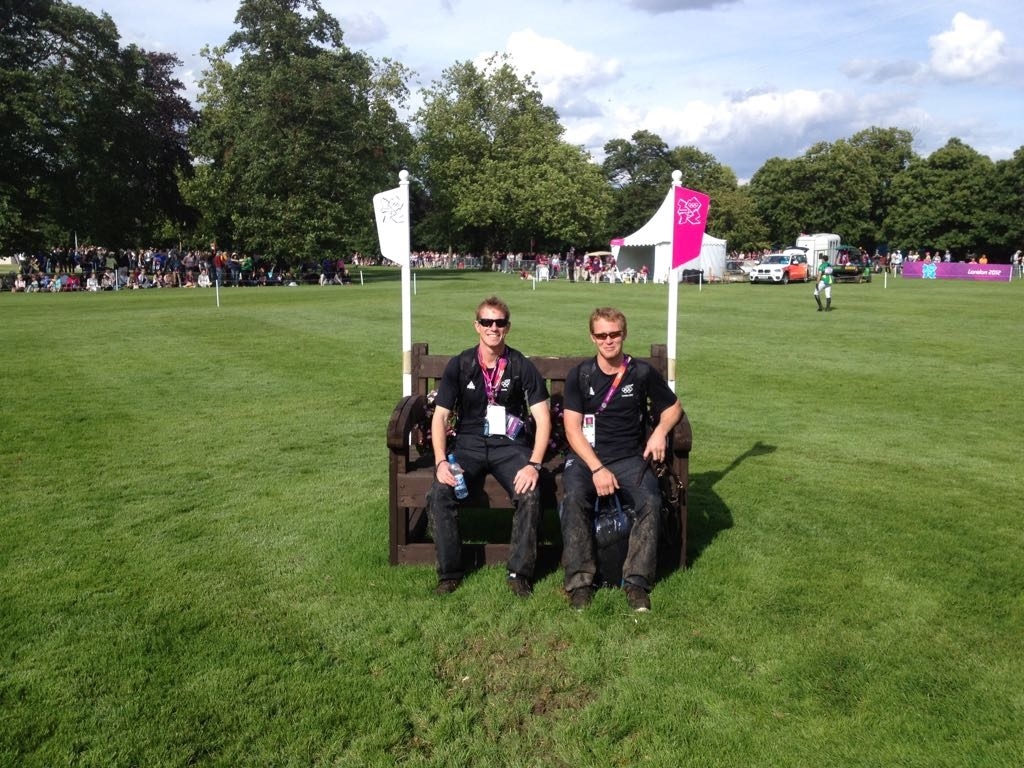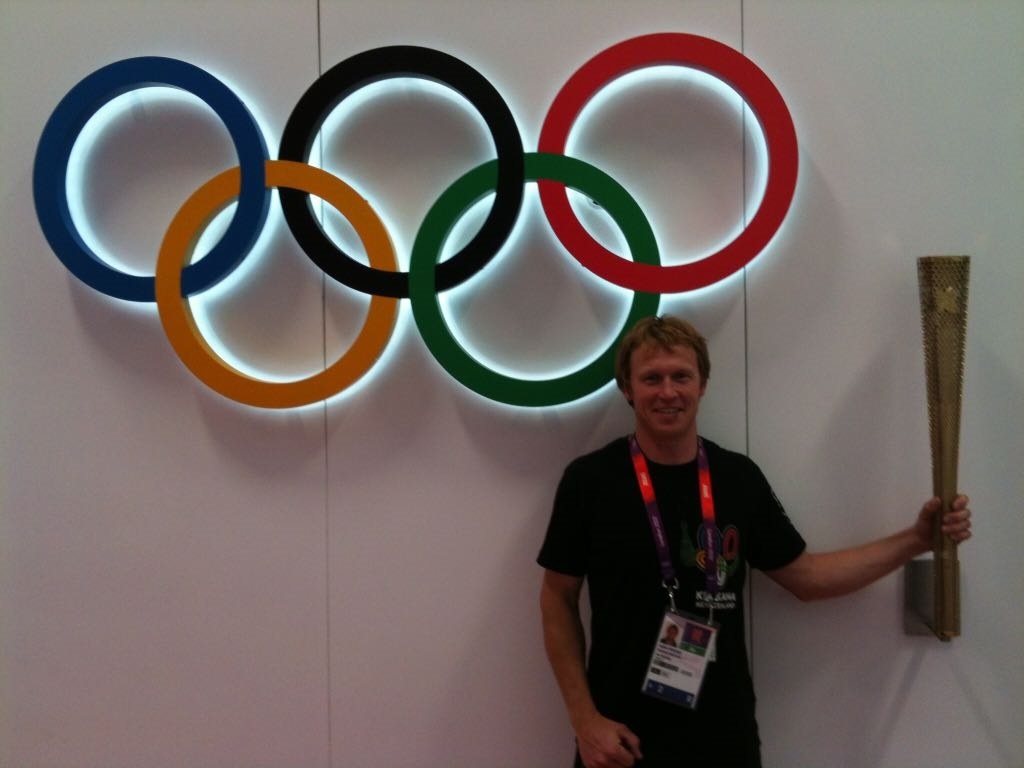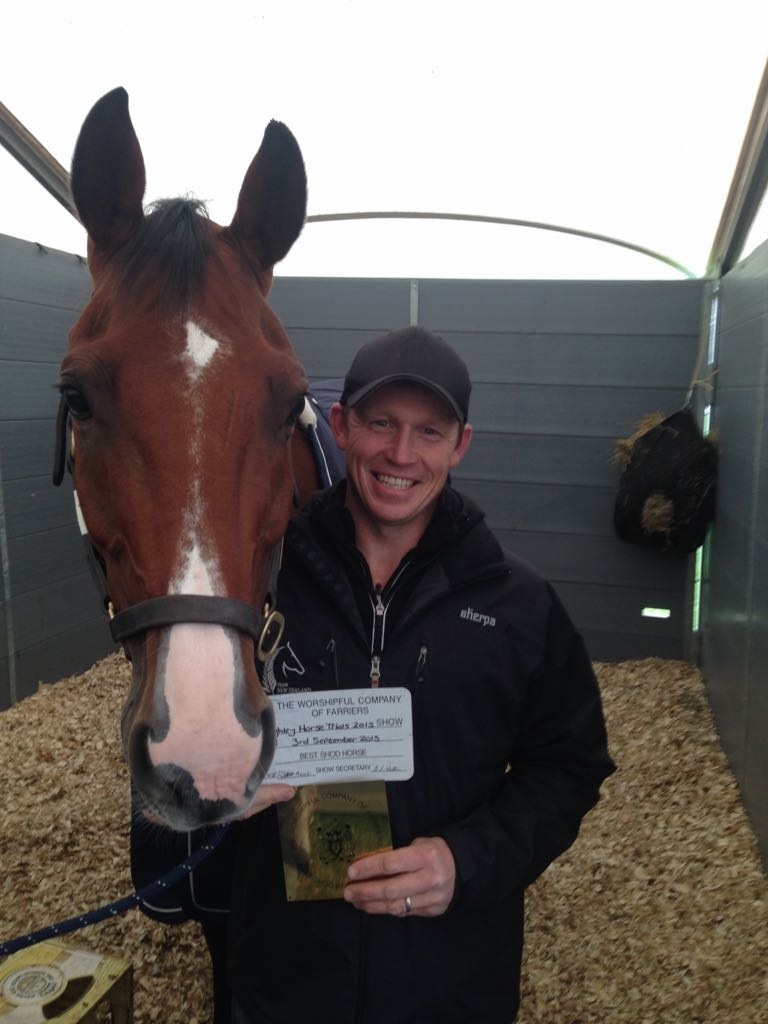Farrier Andrew Nickalls, an integral part of Eventing Team New Zealand, is an award-winner himself. Several times he had won the award for best shod horse, including at Burghley with Ringwood Sky Boy and Tim Price.
“It is an absolute honour and privilege to have a small little part that may make a difference to the team,” he says. “The New Zealand riders are by far and away the best in the world at eventing, and I don’t think the results always give credit to the effort put in by the team we have. We have amazing individuals and I believe there is a WEG team medal in there. I hope to god it is this year!”
Nickalls is now based in Shaftesbury, Dorset, but his career path started when he was just 16 in Cambridge – on this side of the world. “I started an apprenticeship with Wayne Wilson,” remembers Nickalls. “He is a very special man and if not for him I would most definitely be where I am today.”
He has since done five WEG and four Olympic Games with New Zealand teams. It all started in 2002 when vet Tony Parsons and chef de mission Wally Niederer contacted him. “I had moved to England in 1999 ad was working for a farrier, and they asked if I wanted to be involved with the Jerez games and it just went from there.”
“It was quite a different beast back then . . . the whole sport was actually.”
His favourite WEG so far is Kentucky. “For all sorts of reasons,” says Nickalls. “We had a very good team there that wanted to excel and we got a team and individual medal which was awesome.”
That team effort is something he always looks forward to.
“It is special watching the team excel . . . but it doesn’t always happen. It is hard and that is a dynamic I just don’t think people understand. Those who ride for us ride as individuals week in and week out and then all of a sudden they are asked to ride as a group of four or five and it is tough on them and the horses. It takes a very special group to win a medal.”
Nickalls works with most of the Kiwi eventers year round. “The biggest challenge is making sure the horses stay tracking on the line we hope they are. The preparation from a farrier’s point of view is not too dissimilar to that of a rider – for me I want that horse to have feet in the best possible condition. I want them to stay sound and do its job for the rider and team.”
He feels the demands on the horses are far different than they used to be. “I had never even seen most of the horses in the first team I went away with before they got on the plane. Now, the high performance programme is a big beast and one that everyone buys into because of the skill set and knowledge we have available across the whole of it. Everyone is pushing in the same direction. It takes a special person to be able to see the bigger picture sometimes.”
Nickalls felt plenty of pride in seeing the horses he works with perform well at top level but is quick to add, it is a whole team that makes that happen. “There is so much going on behind the scenes – everyone is doing their best to ensure the horses get there in the best shape possible, giving the riders the opportunity to do their job.”
He felt the programme was undervalued at times. “It is that behind the scenes stuff that enables our riders to compete week in, week out – it is huge.”
Each rider has their own way of working with the farrier – some are hugely involved, while others just leave him to do his job with confidence. “If I do my job, they are happy. Others want to understand what I am doing and why.”
Nickalls says he loves being involved at top level with the Kiwi eventers and has many precious memories, but the Olympics remains the pinnacle. He heaped praise on former high performance director Sarah Harris and previous trainer Erik Duvander.
“They were instrumental in changing the programme in the lead up to Kentucky and on the back of the Beijing Olympics. It created a dramatic change in our fortunes as a team. Some hard questions were asked, answers arrived at and things were changed.”
And Nickalls encouraged some of the “younger generation” in New Zealand to take a good look at those leading the way.
“They need to leave New Zealand and understand how hard it is to compete week in, week out against the very best in the world. To have a world class programme you have to be beating the best, and the only way to do that is to come to the world. When you beat them in Britain, you have a good chance of doing that. It is a hard ask. I believe we have that younger talent but they have to get out and go after it . . . it is there if they want it.”

By Diana Dobson – HP Media Liaison
Photos by Libby Law/ENZ & Supplied



